
Whoever wins the US election, the start of a new administration should be an opportunity for a serious reevaluation of US policy toward the war in Ukraine. For it is abundantly clear that the present course is unsustainable, and if persisted in, is likely to lead sooner or later either to Ukrainian collapse or to direct NATO involvement in war with Russia. This is indeed now tacitly admitted by some US commentators like Robert Kagan, though he has not been willing to tell Americans that they must go to war in order to prevent Ukrainian defeat or a compromise peace.
The news from the Ukrainian front line is grim. Ukrainian forces are heavily outnumbered and outmatched in artillery and ammunition. There are growing signs of exhaustion, demoralization, desertion, and evasion of service by both the elites and ordinary people. Russian success is grounded in the fact that Russia simply has far greater resources than Ukraine in terms of both industry and manpower. It has been able to recruit hundreds of thousands of new troops by paying them very high wages. The salary for Russian soldiers in Ukraine is reported to be Rs200,000 per month, which is around three times the Russian average wage for 2023, and up to five times the average salary in the poorer areas of Russia from which most of the soldiers are recruited. Individual provinces also give extra bonuses.
Ukrainians and Western hawks claim that more Western weapons will make a critical difference; and indeed, if some of these had been provided in 2022, when the Russian armed forces were outnumbered and in serious disarray, they might have led to much greater Ukrainian success. Now however, so great is the Russian advantage that Western supplies can make little difference.
Western industry cannot produce anything like the number of artillery shells Ukraine needs; the USA cannot provide sufficient air defense systems to Israel and Ukraine and keep enough for a possible war with China. And above all, NATO cannot manufacture more soldiers for Ukraine. The German government has already declared that it is freezing military aid, and will cut aid to Ukraine by almost half next year, and by more than 90 percent by 2027.
Faced with this reality, Western advocates of unconditional support for complete Ukrainian victory are becoming increasingly desperate. Earlier this year, we were told by the likes of retired Lt. Gen. Ben Hodges that the (genuine) success of Ukrainian missiles and drones in driving the Russian Black Sea Fleet from its bases in Crimea meant that these could also drive the Russian army from Crimea and somehow regain it for Ukraine (after he told us in June 2023 that Ukraine could “free Crimea by the end of summer”). Then, we were told that the (genuine but very limited) Ukrainian incursion into the Kursk region of Russia marked a turning point in the war. Now, we are being told that allowing Ukraine to fire missiles guided by US satellites into Russia will allow Ukraine to transform the war.
It is true that the Ukrainian forces, with tremendous grit, are forcing the Russians to advance very slowly, and are inflicting heavy casualties. Together with the war weariness of much of the Russian population, and Russian economic problems, this could allow Ukraine to reach a peace settlement that would limit Russian territorial gains, and, while excluding NATO membership, allow Ukraine to seek membership of the European Union at some point in the future. This would be very painful for Ukrainians, but it would still be a great triumph in historical terms, and vastly better than what they are likely to get if the war continues. Headlines like “Ukraine must turn the tide before it can negotiate” are, however, meaningless, if by this is meant not just conducting a dogged fighting retreat but also driving the Russians back.
Tragically, the Ukrainian government and Western establishments have so often condemned the very idea of a compromise peace and insisted on complete Ukrainian victory that it is now very difficult for them to change course. They have also by now uttered so often the argument that if Putin is allowed to keep southeastern Ukraine he will go on to attack NATO that they may even have come to believe this nonsense themselves.
A more cogent argument, advanced for example by Ivan Krastev in the Financial Times, is that with the Russian army advancing, Putin has no incentive to seek peace at present; and that his offer of a ceasefire in return for Ukrainian withdrawal from the cities of Zaporizhia and Kherson (claimed but not fully occupied by Russia) is completely unacceptable.
This is true as far as it goes, but the counterargument is that we cannot discover which Russian conditions are absolute, and which negotiable, until we enter into negotiations with Russia; and starting negotiations does not mean accepting initial Russian terms. Members of the Russian establishment have suggested to me the possibility that in return for a treaty of neutrality excluding NATO membership, Russia would give up further territorial ambitions.
Let us make this suggestion in private and see what Moscow’s response is. Even better, empower neutral powers like India and Brazil to make such proposals for peace to the Russians. Given the effort that the Russian government has put into wooing these states and the “global majority,” it would be very difficult for it to spurn a peace initiative from them.
Western support to Ukraine should continue during negotiations so that the Ukrainian forces can continue to fall back slowly and inflict heavy casualties, thereby encouraging the Russians to accept a compromise. We must not, however, delude ourselves either that our support will last indefinitely, or that it can possibly help Ukraine to regain territory that it has lost. We therefore have no honest and viable alternative to also putting pressure on the Ukrainian government to accept a compromise peace.
If the next US administration fails to adopt this course, then there is a serious risk that, like First World War armies after years of trench warfare, the Ukrainian army will eventually collapse. Washington will find itself faced with a choice between accepting severe Ukrainian defeat or intervening directly and risking—or even ensuring—nuclear war with Russia. We must hope that the leaders of the next administration will have the intellectual clarity and the moral courage to recognize this, and act accordingly.
Support The Nation this Giving Tuesday
Today is #GivingTuesday, a global day of giving that typically kicks off the year-end fundraising season for organizations that depend on donor support to make ends meet and enable them to do their work—including The Nation.
To help us mobilize our community in this critical moment, an anonymous donor is matching every gift The Nation receives today, dollar-for-dollar, up to $25,000. That means that until midnight tonight, every gift will be doubled, and its impact will go twice as far.
Right now, the free press is facing an uphill battle like we’ve never faced before. The incoming administration considers independent journalists “enemies of the people.” Attacks on free speech and freedom of the press, legal and physical attacks on journalists, and the ever-increasing power and spread of misinformation campaigns all threaten not just our ability to do our work, but our readers’ ability to find news, reporting, and analysis they can trust.
If we hit our goal today, that’s $50,000 in total revenue to shore up our newsroom, power our investigative reporting and deep political analysis, and ensure that we’re ready to serve as a beacon of truth, civil resistance, and progressive power in the weeks and months to come.
From our abolitionist roots to our ongoing dedication to upholding the principles of democracy and freedom, The Nation has been speaking truth to power for 160 years. In the days ahead, our work will matter more than it ever has. To stand up against political authoritarianism, white supremacy, a court system overrun by far-right appointees, and the myriad other threats looming on the horizon, we’ll need communities that are informed, connected, fearless, and empowered with the truth.
This outcome in November is one none of us hoped to see. But for more than a century and a half, The Nation has been preparing to meet it. We’re ready for the fight ahead, and now, we need you to stand with us. Join us by making a donation to The Nation today, while every dollar goes twice as far.
Onward, in gratitude and solidarity,
Katrina vanden Heuvel
Editorial Director and Publisher, The Nation
More from The Nation
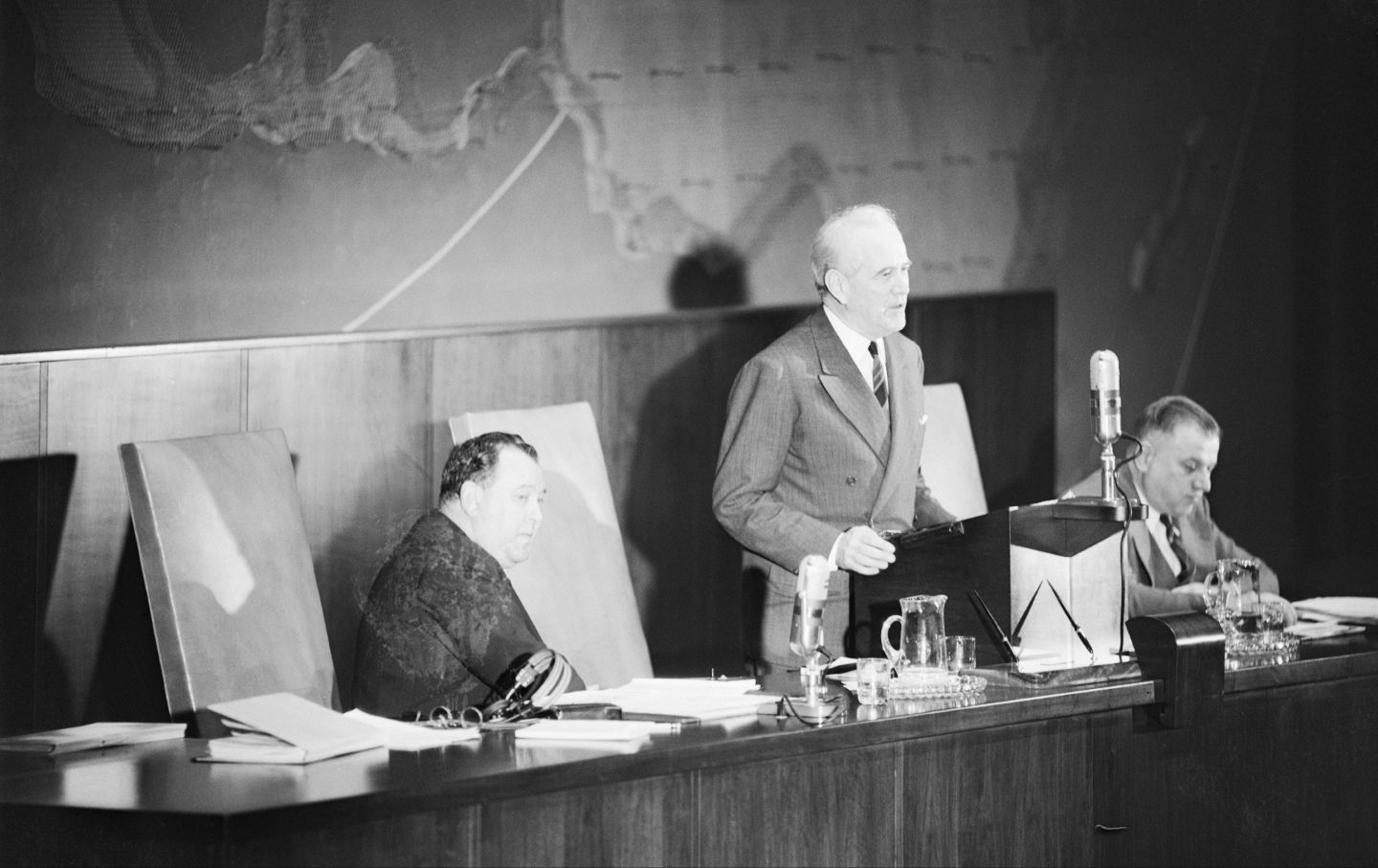
The UN Has Generations of Palestinian Blood on Its Hands The UN Has Generations of Palestinian Blood on Its Hands
Though it is often seen as a target of Israeli aggression, the UN has always played a crucial role in the oppression of Palestinians.
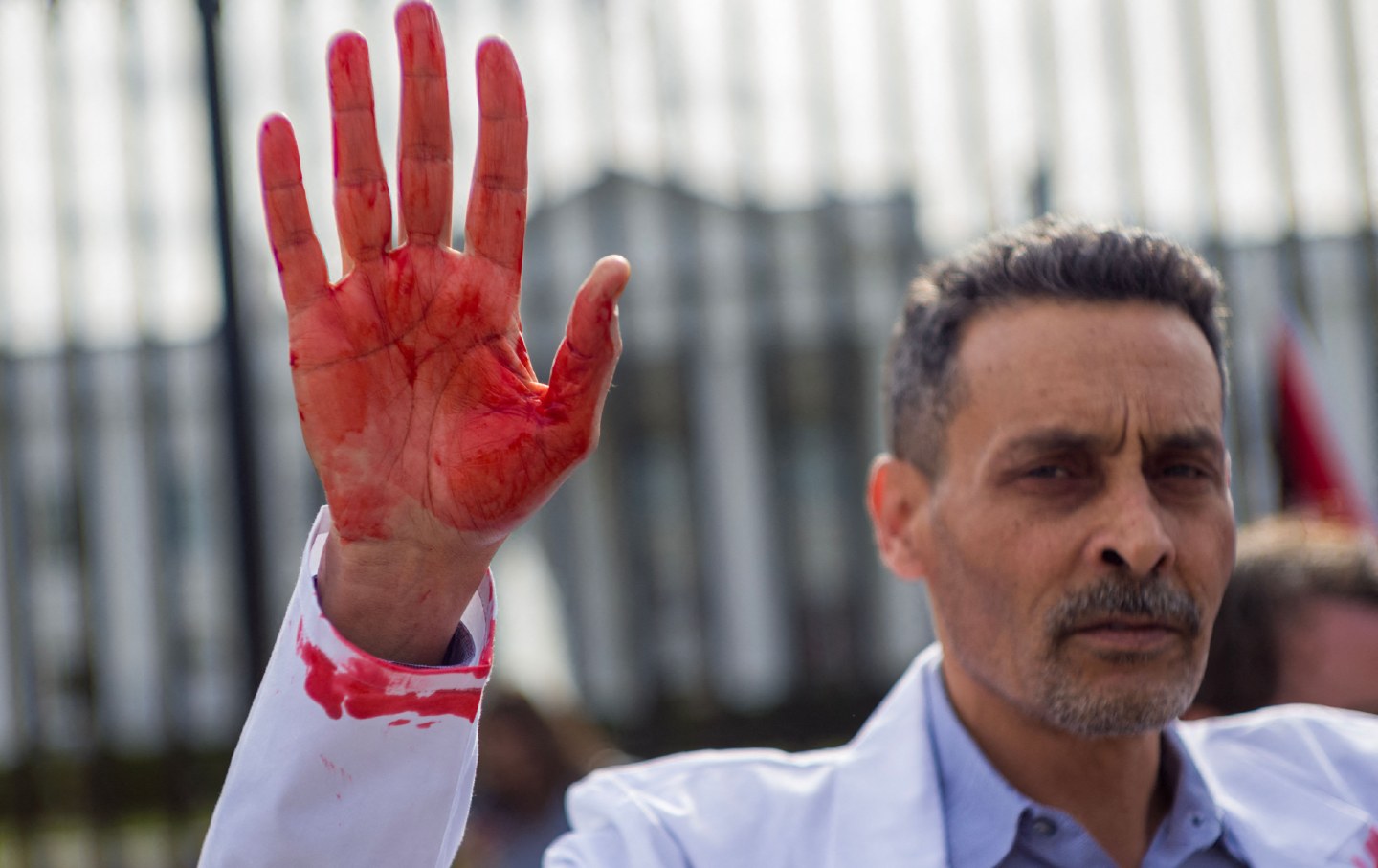
For Those Who Know They Have Not Done Enough to Stop Israel’s War on Gaza For Those Who Know They Have Not Done Enough to Stop Israel’s War on Gaza
It is shamefully easy to keep going about one’s life while Israel continues its onslaught on Gaza with full US support—and it’s absolutely essential to resist that impulse.
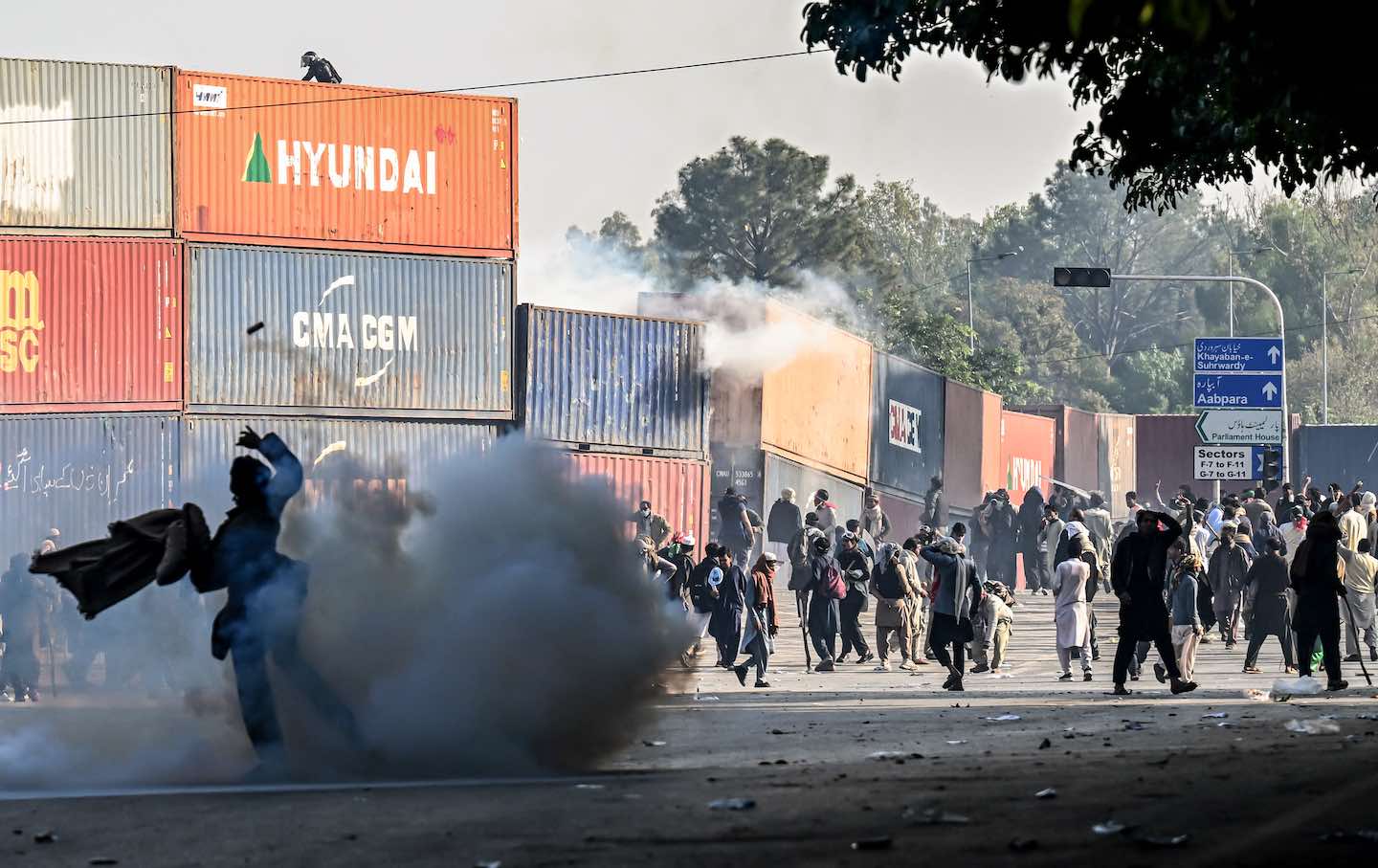
A State Crackdown in Pakistan Threatens Continuing Unrest A State Crackdown in Pakistan Threatens Continuing Unrest
Protesters in support of Imran Khan’s PTI party were met with obstruction and violence, leading to mounting public outrage.
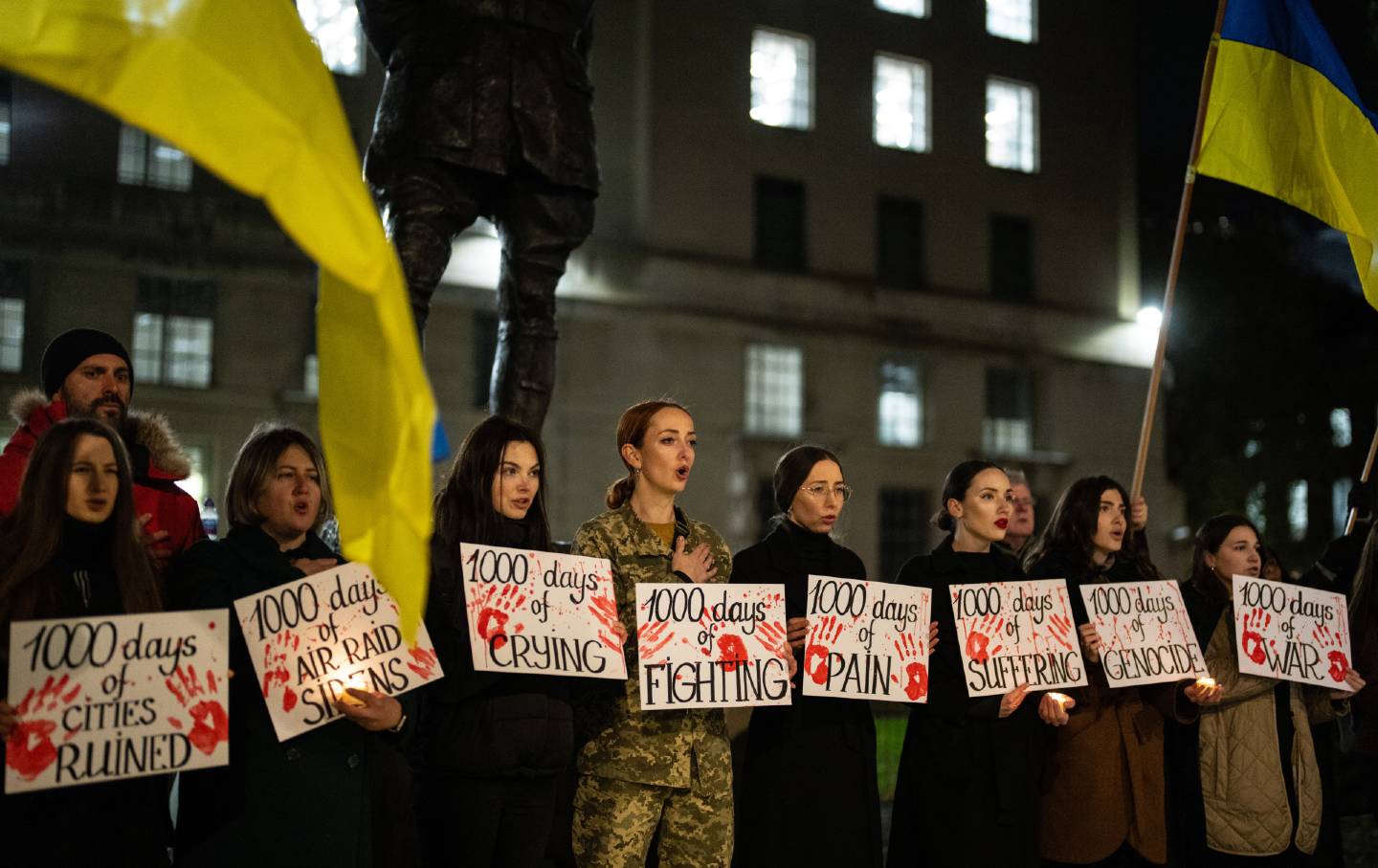
How the War in Ukraine Has Been a Major Contributor to Global Inflation How the War in Ukraine Has Been a Major Contributor to Global Inflation
And it has been a strategic boon to the far right at home and abroad.
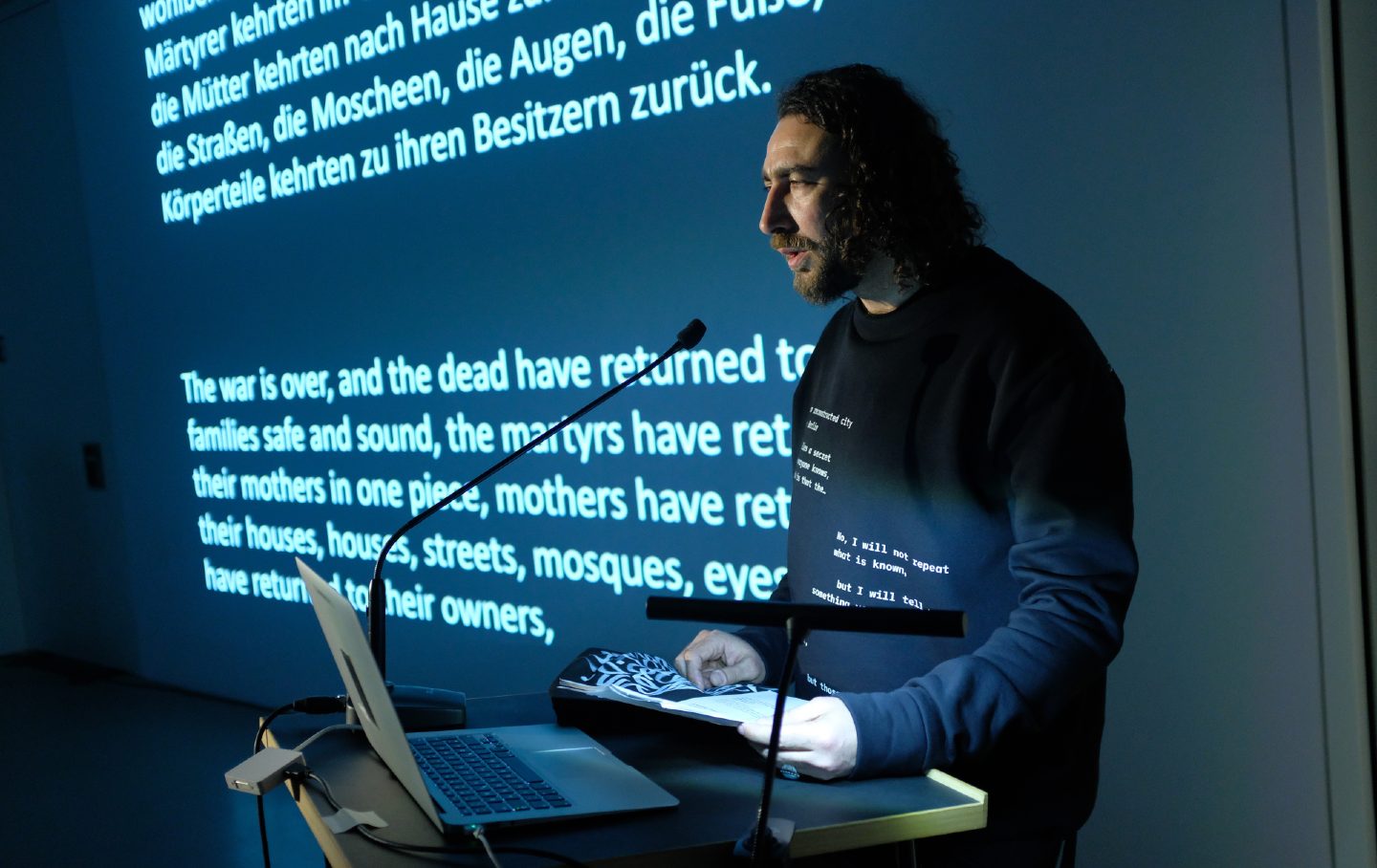
The Exiled Palestinian Poet Fighting Censorship in Democracies The Exiled Palestinian Poet Fighting Censorship in Democracies
Ghayath Almadhoun had a poetry event in Berlin canceled simply because he’s Palestinian. At least 200 more artists have been silenced over Palestine in Germany since.

In the Zone of the Rich In the Zone of the Rich
In The Hidden Globe, Atossa Araxia Abrahamian examines what globalization has come to look like for the wealthy.


